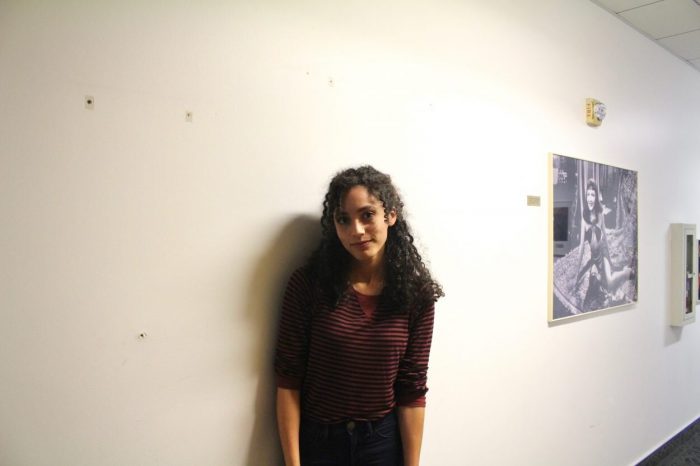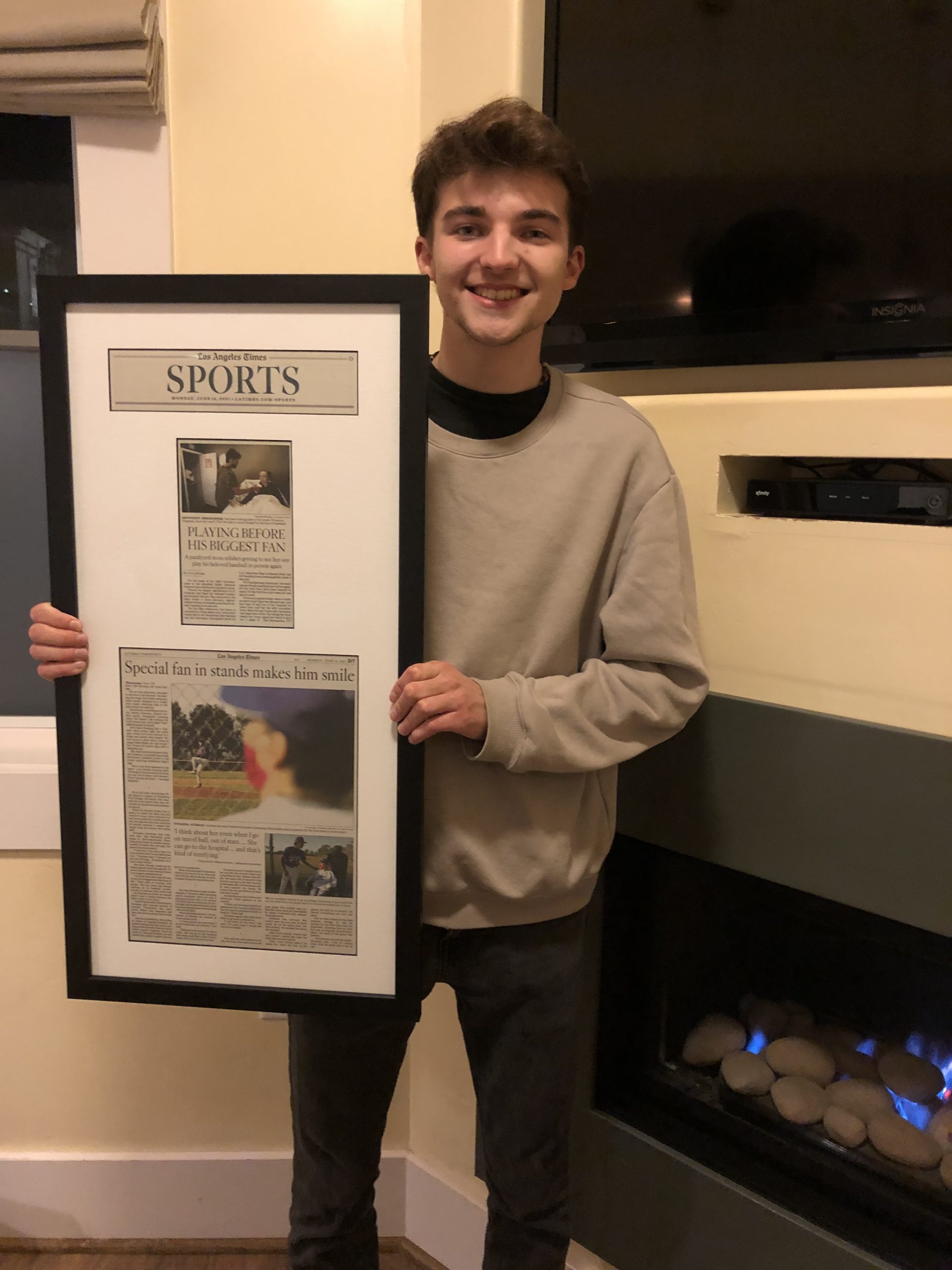
Arri Caviness simply could not have known a walk down the hallway of Chapman University’s Dodge College of Film and Media Arts would indirectly spark a revolution. She just needed, in all honesty, to use the bathroom.
In the year to come, she’d learn students had been locked in a never-ending struggle of protesting a single poster on the wall, a poster faculty were scared to speak out about, perhaps in fear of losing their jobs. She’d spearhead a successful movement to remove it. Many believe it helped galvanize student voices on a wide variety of topics.
But back in that moment – in a tour on her graduate student orientation – only one thought crossed her mind, staring at the large, blue-rimmed letters “BIRTH OF A NATION”:
“What the hell?”

Photo by Cassidy Keola, The Panther.
Years from now, Chapman University may look back on the 2019 removal of that “Birth of a Nation” poster – a film that brought about the revolution of the Ku Klux Klan and championed white supremacy – as a turning point in student activism. Some believe it helped galvanize student voices on a wide variety of topics.
“It’s almost like the inability or the unwillingness to address that, kind of like a past sin of sorts … creates more aggressiveness in terms of wanting to (address) other things,” Pete Simi, a sociology professor and expert on extremist groups, said.
Chapman sociology professor Ian Barnard believes in a concept of “accountability culture” – a movement to hold those in relative positions of power accountable for their actions or words. While Barnard has noticed a clear increase in student activism, they don’t necessarily attribute Chapman’s own “accountability culture” to the Birth of a Nation removal – yet still believes it has the potential to increase conversation.
“Hopefully, when the students see they were successful in one thing, then they will feel like they can continue this kind of activism,” Barnard said.
Here are some of those conversations ignited in the wake of the poster’s removal:
Dissent over law professor John Eastman’s Newsweek opinion and campus busts of historical figures. Widespread anger over former student Dayton Kingery’s racist tirade. Individualized petitioning over Eric Chimenti’s right-wing Pinterest board. The introduction of the Abolish Greek Life movement.
Most notably, the Black Student Union (BSU) – who worked side-by-side with Caviness and a number of other student leaders to draw attention to the Birth of a Nation poster – has been extremely active in the wake of the Black Lives Matter movement, demanding accountability from the university on a lack of diversity. They’ve outlined a 12-point action plan, which includes demands to administration such as the hiring of more Black faculty and mandatory diversity training for all students, faculty and staff.
“After (the poster) was gone, people did start bringing up other things,” Caviness said. “I’m glad that some of these skeletons are coming out [of the closet].”
Whatever the occurrence may be, there has been a clear uptick in student activism towards speech that, in a time not long ago, might have been brushed under the rug.
An example: How many Chapman students know that only six years ago, the university paid $75,000 to settle a suit leveled by the U.S. Equal Employment Opportunity Commision on behalf of former professor Stephanie Dellande, asserting she had been denied tenure because she was African American?
The activism, however, has its share of opposition. Some label it as “cancel culture,” the concept of a widespread attempt to remove the platform of someone after a controversial statement or action.
President Daniele Struppa has observed the emergence of “cancel culture” both in public discourse and at Chapman’s campus – and strongly disapproves of its ability to hinder academic discussion.
“Part of it is, ‘We don’t like what you said, so we’re going to ruin you,” Struppa said. “It’s a form of persecution, it seems to me.”
Yet despite Struppa and other administration’s frequent backings of free speech in cases such as Eastman or the busts, student organizations continue to petition administration such as Struppa for institutional change. If the university doesn’t follow the precedent they set with the “Birth of a Nation” removal to listen to the increasingly deafening demands of its students, a reckoning could soon become an apocalypse.
“We’re in a pivotal time for Chapman as an institution,” Simi said. “One false move could really send us down the wrong path.”
There’s hope, though. A right path. In particular, Dodge College, under new dean Stephen Galloway, has hired a number of BIPOC faculty over the past few months in response to student and BSU demands.
Yes – that Dodge College. The same place where this all began.

Luca Evans is a senior broadcast journalism major at Chapman University and co-editor of ChapBook Magazine for the spring 2022 semester. He enjoys sports, writing, sportswriting, and most of all annoying his co-editor.
Luca Evans is a senior broadcast journalism major at Chapman University and co-editor of ChapBook Magazine for the spring 2022 semester. He enjoys sports, writing, sportswriting, and most of all annoying his co-editor.
